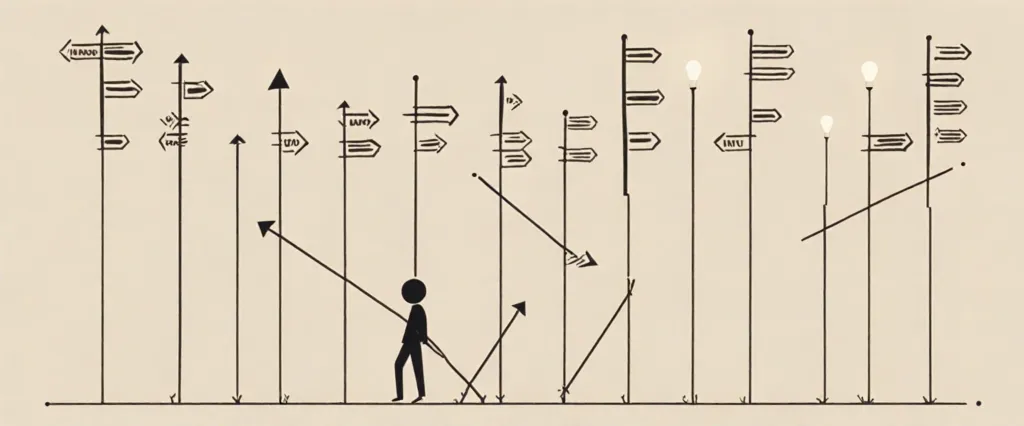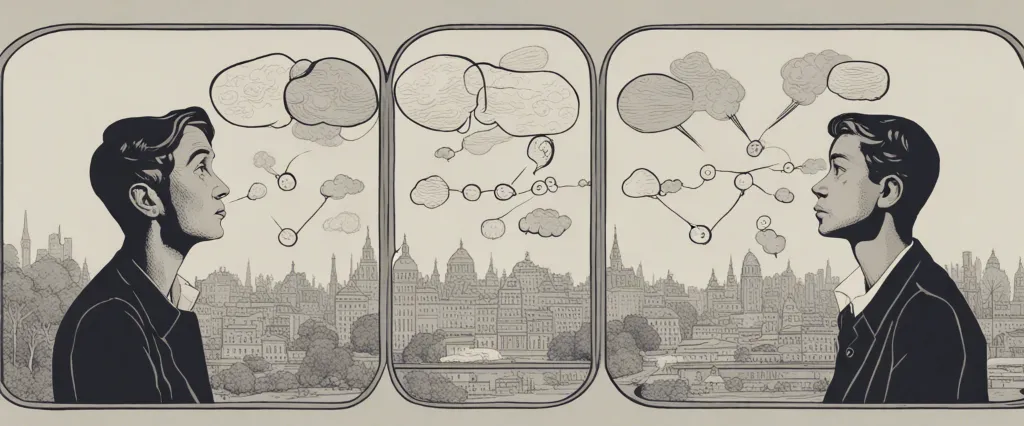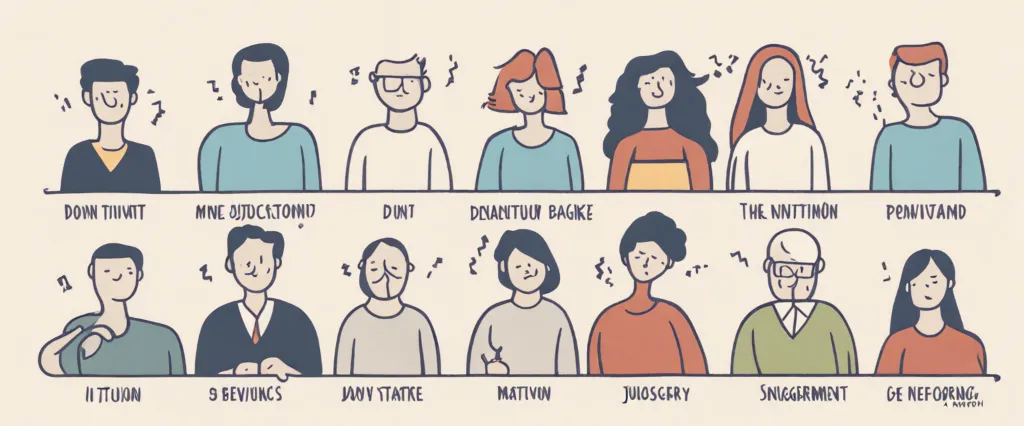——13 Things Mentally Strong People Dont Do by Amy Morin & 12 Rules for Life by Jordan Peterson

In the realm of self-help literature, an abundance of advice is readily available for those seeking personal growth and transformation. As individuals strive to overcome challenges and achieve success, authors have endeavored to provide wisdom and guidance through their works. Two such books, Amy Morin’s “13 Things Mentally Strong People Don’t Do” and Jordan Peterson’s “12 Rules for Life,” stand out among the plethora of self-improvement literature, captivating readers with their unique approaches and profound insights. While Morin focuses on the psychological aspects of mental strength, Peterson delves into the intertwining realms of psychology, philosophy, and spirituality. In this comparative study, we will explore the foundational principles put forth by both authors, examining their similarities and divergences, in order to gain a comprehensive understanding of the paths they propose to enhance one’s mental well-being and resilience. By overlaying the contrasting perspectives of these two renowned authors, we aim to distill a holistic approach that cultivates mental strength, forging a path towards a more fulfilled and purposeful life.
Brief Summary of Two Books
13 Things Mentally Strong People Dont Do by Amy Morin
“13 Things Mentally Strong People Don’t Do” by Amy Morin is a self-help book that focuses on the key habits mentally strong individuals avoid in order to improve their mental and emotional well-being. Morin, a licensed clinical social worker and psychotherapist, draws upon her personal and professional experiences to provide valuable insights and practical advice in this book.
The book is divided into thirteen chapters, each focusing on a specific habit that mentally strong people don’t engage in. Morin explores topics such as avoiding self-pity, refraining from giving away power, and refusing to dwell on the past. She emphasizes the importance of taking responsibility for one’s actions, reframing negative thoughts, and building healthy coping mechanisms.
Throughout the book, Morin provides relatable examples, scientific evidence, and actionable strategies to address each habit. Drawing from her own experiences and observations, she shares anecdotes and case studies to support her points and make them more applicable to readers’ lives.
One of the strengths of this book is its practicality. Morin offers exercises, reflection questions, and challenges at the end of each chapter, guiding readers to put the concepts into practice. By doing so, readers can develop habits that will help them become mentally stronger.
Overall, “13 Things Mentally Strong People Don’t Do” is a valuable resource for anyone looking to improve their mental resilience and emotional well-being. Morin’s accessible writing style, combined with real-life examples and practical exercises, makes this book a useful tool for personal growth and development.
12 Rules for Life by Jordan Peterson
“12 Rules for Life: An Antidote to Chaos” by Jordan Peterson is a self-help book that explores various principles and guidelines to live a more fulfilling and purpose-driven life. Peterson, a Canadian psychologist and professor, draws on science, religion, philosophy, and personal anecdotes to provide insights into human behavior and well-being.
The book is divided into twelve chapters, each presenting a rule or principle. Peterson emphasizes the importance of taking personal responsibility for one’s life and confronting the chaos and suffering that inevitably comes with it. He argues that by facing our fears and embracing responsibility, we can find meaning and purpose in life.
Some of the key rules include:
1. Stand up straight with your shoulders back: Peterson explains how adopting good posture can improve confidence and self-esteem, positively impacting mental and physical well-being.
2. Treat yourself like someone you are responsible for helping: This rule encourages readers to prioritize self-care and take responsibility for their own well-being, just as they would for someone they care about.
3. Make friends with people who want the best for you: Peterson highlights the importance of surrounding ourselves with positive and supportive individuals who genuinely wish for our success and growth.
4. Compare yourself to who you were yesterday, not to who someone else is today: Instead of constantly comparing ourselves to others, Peterson suggests focusing on personal growth and progress, aiming to become a better version of ourselves each day.
Throughout the book, Peterson articulates his ideas with examples from history, mythology, and his clinical practice. He delves into topics such as discipline, truth, meaning, religion, and relationships, providing practical advice on how to navigate the complexities of life.
Overall, “12 Rules for Life” offers a thought-provoking and introspective journey, encouraging readers to take control of their lives, confront chaos, and find meaning in a world that often seems overwhelming.
Comparison between Two Books

Similarities in Self-help
13 Things Mentally Strong People Don’t Do by Amy Morin and 12 Rules for Life by Jordan Peterson both fall under the self-help genre and share several similarities in their approach to personal improvement.
1. Focus on Mindset: Both books emphasize the importance of developing a strong and resilient mindset. They provide strategies and advice for overcoming adversity, managing stress, and building mental strength.
2. Emphasize Personal Responsibility: Both authors stress the significance of taking personal responsibility for one’s life and choices. They encourage readers to be proactive, make positive changes, and take control of their own destinies.
3. Self-Reflection and Improvement: Morin and Peterson promote self-reflection as a key aspect of personal growth and development. They encourage readers to objectively assess their strengths, weaknesses, and areas for improvement to foster personal growth.
4. Practical Tips and Actionable Advice: Both books provide practical tips and actionable advice that readers can implement in their daily lives. They offer specific techniques for building mental strength, improving relationships, setting goals, and finding purpose.
5. Draw on Personal Experiences: Morin and Peterson both draw on their personal experiences as mental health professionals, as well as their own struggles and triumphs. This lends credibility and relatability to their advice, making it more applicable and inspiring to readers.
6. Integration of Psychological and Philosophical Concepts: Both books combine psychological and philosophical concepts to enhance their self-help message. Morin integrates cognitive behavioral therapy principles, while Peterson weaves in philosophical ideas from various thinkers. This interdisciplinary approach enriches the content and provides a comprehensive perspective on personal growth.
7. Focus on Meaning and Purpose: Both authors emphasize the importance of finding meaning and purpose in life. They explore the significance of values, morals, and a sense of direction to help readers cultivate a fulfilling and purpose-driven existence.
8. Encouragement of Resilience and Persistence: Both books advocate for the qualities of resilience and persistence. They highlight the importance of bouncing back from setbacks, learning from failure, and persisting in the face of adversity to achieve personal growth and success.
Overall, 13 Things Mentally Strong People Don’t Do and 12 Rules for Life share an emphasis on developing a resilient mindset, taking personal responsibility, self-reflection, actionable advice, personal experiences, integrating psychological and philosophical concepts, finding meaning, and embracing resilience. These commonalities make them valuable resources for individuals seeking self-improvement and personal growth.
Divergences in Self-help
The books “13 Things Mentally Strong People Don’t Do” by Amy Morin and “12 Rules for Life” by Jordan Peterson both fall under the self-help genre, but they approach the topic from different angles and offer distinct perspectives. While both books aim to provide guidance for personal development, they diverge in terms of their underlying philosophies, writing styles, and the specific areas of focus within self-help.
1. Philosophical Approach:
– Amy Morin’s book primarily focuses on mental strength and resilience, providing practical advice for overcoming challenges and developing a positive mindset. She emphasizes the importance of avoiding self-destructive behaviors and fostering emotional well-being.
– Jordan Peterson’s “12 Rules for Life” takes a more philosophical approach, drawing from various disciplines such as psychology, philosophy, and mythology. Peterson aims to provide a framework for living a meaningful life by outlining twelve key principles or rules.
2. Writing Style:
– Morin’s book is concise and straightforward, offering concrete examples, stories, and actionable strategies that readers can immediately implement. She shares her personal experiences as a psychotherapist and uses them to illustrate her points effectively.
– Peterson’s book is quite dense, filled with philosophical and psychological references. He often digresses into tangential discussions and employs complex language. It requires more time and effort from the reader to fully grasp his ideas.
3. Areas of Focus:
– Morin’s book focuses primarily on mental strength, discussing topics such as overcoming self-doubt, building resilience, and fostering a positive attitude. She also delves into relationships, parenting, and work-related challenges.
– Peterson’s book explores a wider range of topics, including personal responsibility, developing character, finding meaning in life, creating order, and confronting chaos. He also touches upon topics such as religion, identity, and social hierarchy.
In summary, the divergence between these two self-help books lies in their philosophical approach, writing style, and areas of focus. Amy Morin’s “13 Things Mentally Strong People Don’t Do” provides practical strategies for developing mental strength and resilience. On the other hand, Jordan Peterson’s “12 Rules for Life” takes a more philosophical approach, offering a broader range of guidance on living a meaningful life. Understanding these differences allows readers to choose the book that aligns with their specific needs and interests in self-help literature.

Conclusion
Determining which book is more worthy of reading ultimately depends on personal preferences and interests. Both “13 Things Mentally Strong People Don’t Do” by Amy Morin and “12 Rules for Life” by Jordan Peterson offer valuable insights and guidance.
If you are interested in self-improvement and developing resilience, “13 Things Mentally Strong People Don’t Do” may be a suitable choice. It delves into various mental habits that can hinder personal growth and offers practical strategies to overcome them.
On the other hand, if you are interested in philosophical and psychological perspectives on life and human behavior, “12 Rules for Life” might be more appealing. Jordan Peterson explores a wide range of topics, including self-discovery, responsibility, and the social dynamics of human interactions, offering thought-provoking ideas and advice.
Consider the areas of your life where you seek improvement or guidance and choose the book that aligns more closely with your goals and interests.


